So in our last discussion about convention programming, we talked about how to better your panel proposals and the harsh things coordinators for conventions have to deal with from submissions. Now we get to talk about one of my favorite subjects, content. While I’ve done my share of this for conventions, I brought on the most resourceful woman in convention planning to share some of her insight.
Lately, it seems as though most conventions set out to rip off SDCC in order to sell a slice of that experience to a varying size audience that doesn’t have access to that experience. While you can emulate certain parts of Comic-Con, you can’t duplicate the money studios pour into having the stars of their film on a panel or the exclusivity of showing a trailer for the first time anywhere. Smaller conventions have to create something different. It’s with that in mind, I asked a friend of mine, who happens to know a thing or two about the comics aspect of pop culture, to weigh in on this topic. Kristen Simon started in the business as an editor for one of the original Image Comics imprints, she went on to be a program director for Girl Scouts of America, now she owns her own company (GeekChic Promotions) in the business of building and managing events ranging from the smallest of conventions and comic book shops to working with big clients such as Nike.
What makes her good at what she does is her outside the box thinking when it comes to using resources no one would even consider. For the past 2 years, Long Beach Comic Con incorporated NASA science into the convention creating “Space Expo”, a part of the exhibit floor where attendees can be exposed to various aspects of our country’s space program, as well as various panels on different subjects orbiting it. Get it? Kristen was also the one who opened the partnership with Girl Scouts of America that gave young girls an opportunity to learn how to make comics from professionals. Believe me, I know the owner of LBCC and it ain’t something they’d come up with on their own.
First of all, let’s get into a myth about conventions. For most shows, only a fraction of programming is developed in house. The larger a show is, the less that number becomes because larger shows get pitches from well-known studios, publishers, and companies making the creative job easier though more tedious in scheduling. Smaller scale shows have the daunting task of building a slate of programming nearly from scratch, either by utilizing their guest list or reaching out to strategic partnerships. These convention programming directors literally have to work with what they’re given. Often they’re the head of a team chosen wisely to fill in the parts of pop culture they might not be an expert in. Because the truth is there is no such thing as “king nerd” who knows every single thing about all facets of geek.
Now comes the part of actually coming up with content. It’s hard. Especially in a market like southern California where every local creator has done 10 comic book writing panels by the time they get to your show. I’ve always had the philosophy when it comes to this aspect of conventions that programming is about creating moments. No one will ever remember your entire panel lineup, but they’ll remember seeing Mike Allred and Ralph Garman talk about Batman, a massive crowd play of a popular unreleased video game, or when a panel gets crashed by a living legend. But we all approach planning in different ways and I know you’re curious to see how Kristen programs for her shows. So I’ll shut up for now. Kris, tell me your philosophy and a bit of your process when it comes to putting together programming.
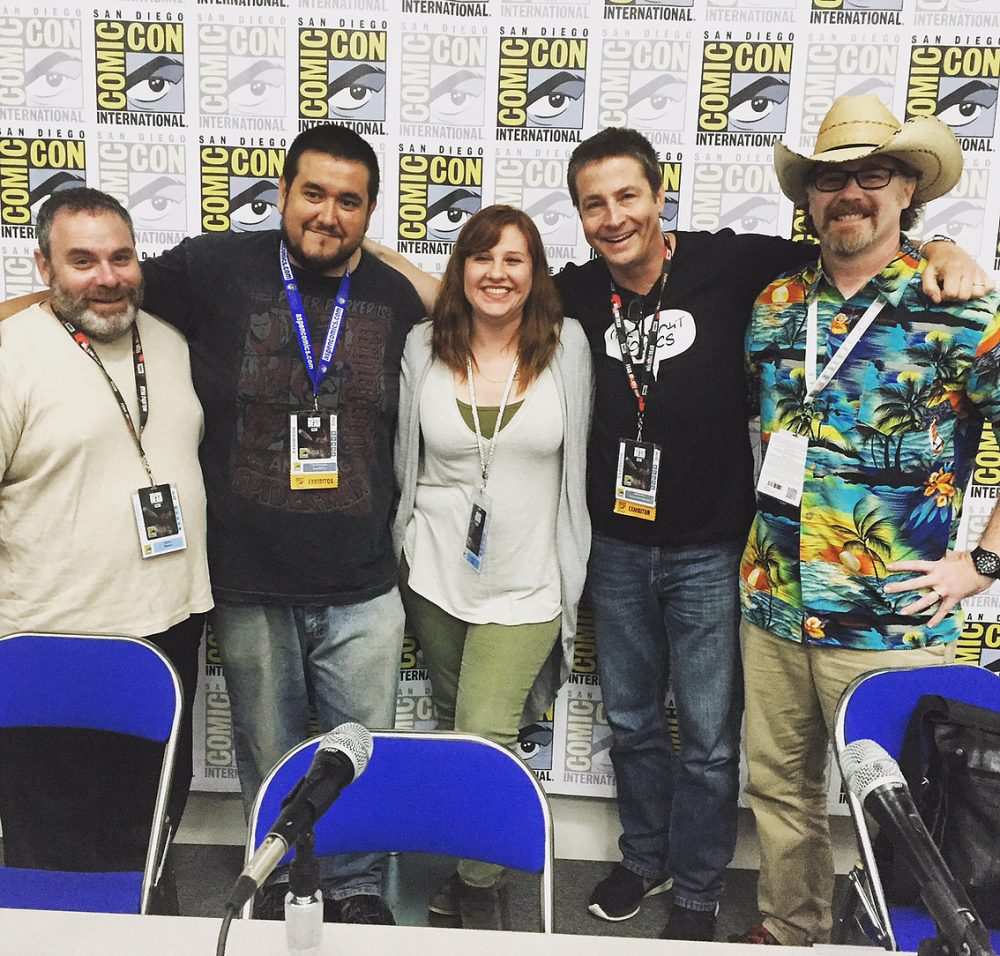
Kristen: First of all, I believe creating the programming is a team effort. There absolutely needs to be people to bounce ideas off of so you know you’re headed in the right direction. I can’t take credit for the Space Expo idea itself, that was someone who no longer is with the show, but I did have the connections to pull it off and make it happen and then grow it in collaboration with the event’s coordinators at the space companies. And that’s what I believe is key, is having a team (whether they are friends or coworkers you like) to brainstorm and then making it happen. For example, the publicity team for the show needs to be able to promote something unique and different in order for news outlets to pick it up, and it needs to be more than a celebrity guest. So having a few drinks with the publicist and figuring out what the programming needs to include to make their life easier is highly recommended. This is how average instructional panels on how to write or ink suddenly become a #MakeComics branded panel. Or how the Girl Scout badge workshops suddenly have Chloe Bennet presenting the badges to the girls. Or how a full track of panels become branded #ConLife and all the panelists talk about who they’ve hooked up with at conventions….oh wait, that one never happened, we were drunk by then. But those panels would have filled up and been all over the media, am I right?
I know I’ve heard all the wild SDCC orgy stories, but I do agree it takes a village to pull this off. It’s specifically helpful when you go into a territory or a genre you might not be the most educated in. Cosplay is such a big scary thing to me, but the more you talk to cosplayers doing panels the more you find they want your guidance just as much as you need theirs.
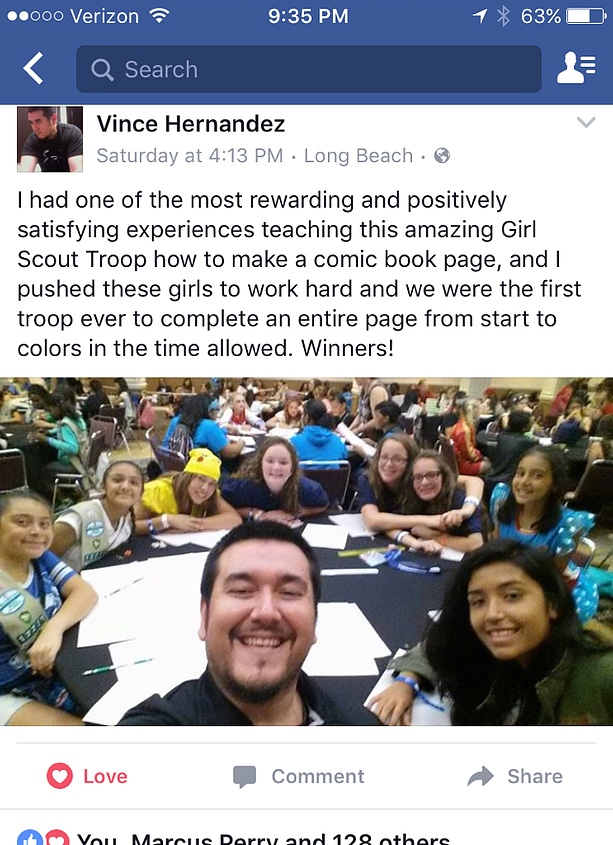
One trend I see in many sprawling or even new conventions is how they’ve become almost Xerox copies of one another and promoters feel as though they’ve spent too much if they simply pay for Audio/Visual tech in the room. Many independent promoters who own shows only spend the bare minimum on its convention programming. Be aware, panels are hard to track a return on investment from. You wouldn’t expect a celebrity to sell your show to an audience for free so why do you expect this from your panel lineup? It’s really the view of one’s own show that sets a tone. The business of smaller conventions is to convince “exhibitors” they’ll make money on the show’s giant flea market of a floor, programming exists to add a value. Kris and I probably share a similar view of convention programming that parallel’s the old business model of television in that content is there to draw an audience to advertiser’s commercials which in the case of conventions is everything on the exhibit floor. If you want to build an entertainment experience for an audience, then a precise lineup of panels that represents a voice has a better chance to pillar a show than “over 100 hours of programming”. As a matter of fact, the best convention I ever attended, later went on to serve as a vendor to, only had 6 panels its first year. Every single thing packed a 2000 seat room and evoked a real energy and everyone went home happy from the experience. It shows, if you believe in and want to see your own panels, so will your audience. Not only that but if you’re asking for programming to be more than an afterthought then make sure that’s what your budget says. Kris, how much of a show’s budget should programming cost and do you believe in quantity over quality?
Kristen: I definitely believe in quality over quantity. I think programming should primarily serve two purposes: to alleviate the crowds on the show floor and bring more people to the show floor. It sounds like those two things are at odds, but they’re not. Complaints of attendees feeling like herded cattle, or how creators in Artist Alley just watch a packed line of people move past them without stopping is no good. Programming is meant to intermittently take people off the show floor so there is breathing room and people can stop, chat and shop. Programming is also meant to attract more people to the show so they can catch that panel with the panelists they’ve been dying to hear from. They won’t buy a ticket and not go onto the show floor to look around after seeing the panels they want to see. The budget is a tough question to answer because it depends on where the costs are allocated. Guest guarantees/fees and associated hotel and travel costs so you can get those people on panels, A/V and room set ups, etc. What I can say is that if you’ve made up your mind to knock your programming out of the park, then don’t bare bones it. Provide a fantastic A/V setup, make sure the room layouts are great and invite guests who are dynamic and who fans haven’t seen year after year.
See that’s something much easier said than done. In the comic con world, most shows lean on the locals to fill out a guest line up and only a few spots in that lineup are names you don’t see year after year. I do however get the idea behind what you’re doing and it’s something I wish more promoters shared. As a programming director, you should do everything you can to get people interested in your guests by cross-pollinating one creator’s fans with another. Lineup pairings are key, and it’s the easiest method to find new kinds of programs. It’s how you find new ways to look at comics as a medium.
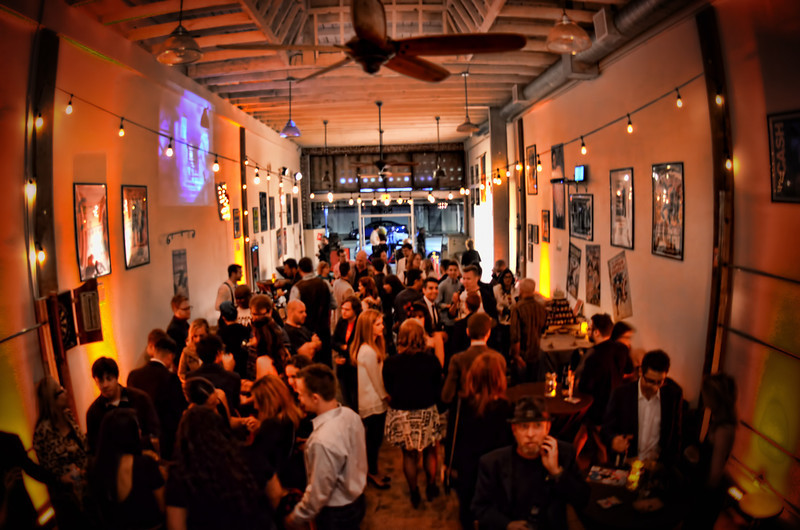
Let’s end this little chapter on programming with the all important question of how do you schedule content? Shows that include days during the week are a bit tougher to schedule as they have less “prime time” hours. Then there’s the question of how to give things a chance to be attended and not buried by Tommy the green ranger (Just an example). If you’re on this site, the chances are you’d rather listen to Chris Claremont talk about writing X-Men over listening to Wesley Crusher talk about his latest twitter rant. But the mass audience of pop culture are star crazed. So is there a secret to scheduling? How do you give other panels a chance when you have a line up of celebrity Q&As? I find if a celeb panel starts on the hour comics panels featuring known creators start on the half hour. That way it gives other panels a chance for audience growth mid panel. Kristen, what do you find are the best scheduling tricks for conventions?
Kristen: You absolutely have to stagger the panels. Ideally, you want people to have a hard time choosing which panels they want to attend because they should ALL be amazing. But staggering them does make it easier. Also, if you have a weaker panel that you really believe in, place it between two stronger ones. Creators do not love being on Sunday morning panels because everyone parties the nights before and panel rooms are barren. If I had my way, I wouldn’t start programming until noon-ish on Sunday for that reason. I know show runners don’t believe in that though, they insist on putting relatively large panels during that time so it forces people to show up. It never works, and it just pisses everyone off, and I get the whiney emails from people who don’t want to be put in that time slot and the attendee feedback asking why on earth I would do that.
Having tracks is also a good idea. Main room, comics, animation, video games, space, all ages, etc. Doing this targets the audience and the panels support each other instead of just being a big pile of panels that people sort through. It themes the programming.
Hahaha Kristen, there’s no such thing as weak panels only weak panelists. At least I think that’s how the saying goes. You do bring up a good point on how much control programming directors have. On a Saturday you can run panels from beginning to end, but Sunday really only has the prime hours of Noon-3pm to work with. Years ago, you and I kicked around the idea of a convention running half their panel rooms from 11am-2pm and the other half from 2:30pm-close which in theory gives you a middle of the day where you can turn fan films into full panels, but owners only think of how a guidebook will look. You should be able to start your schedule at the time you feel is most optimal without the meddling of a promoter who panics when every hour on the schedule isn’t filled.
Thank you Kristen for sharing a bit of your expertise with us. You all should follow @GeekChicPromos on twitter and @GeekChic_Promos on Instagram to keep up on all its upcoming events and places your favorite comic book creators drink at. Next time you have a good time at a convention panel, take some time to thank the people who put it together. It’s often a very thankless life.


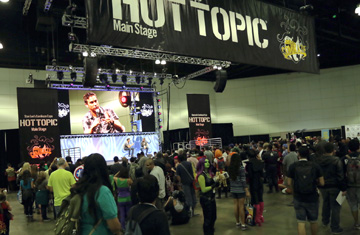

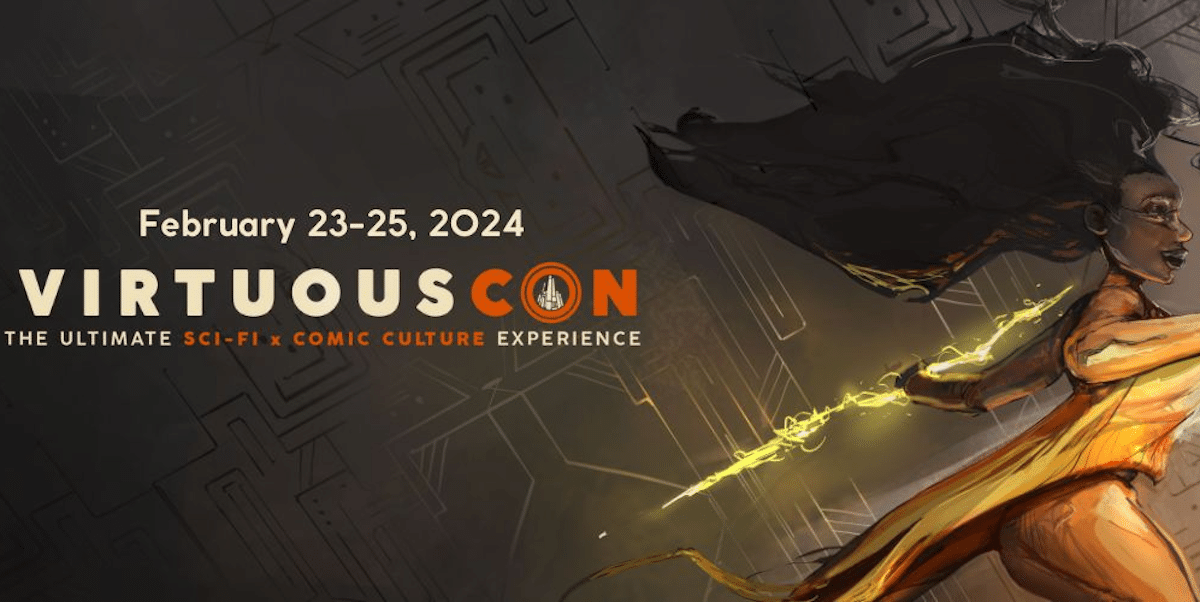




Hm…I know the owner of Long Beach Comic Con too…and I’ve been impressed by the creativity and the vision behind the “things they come up with on their own.”
Comments are closed.